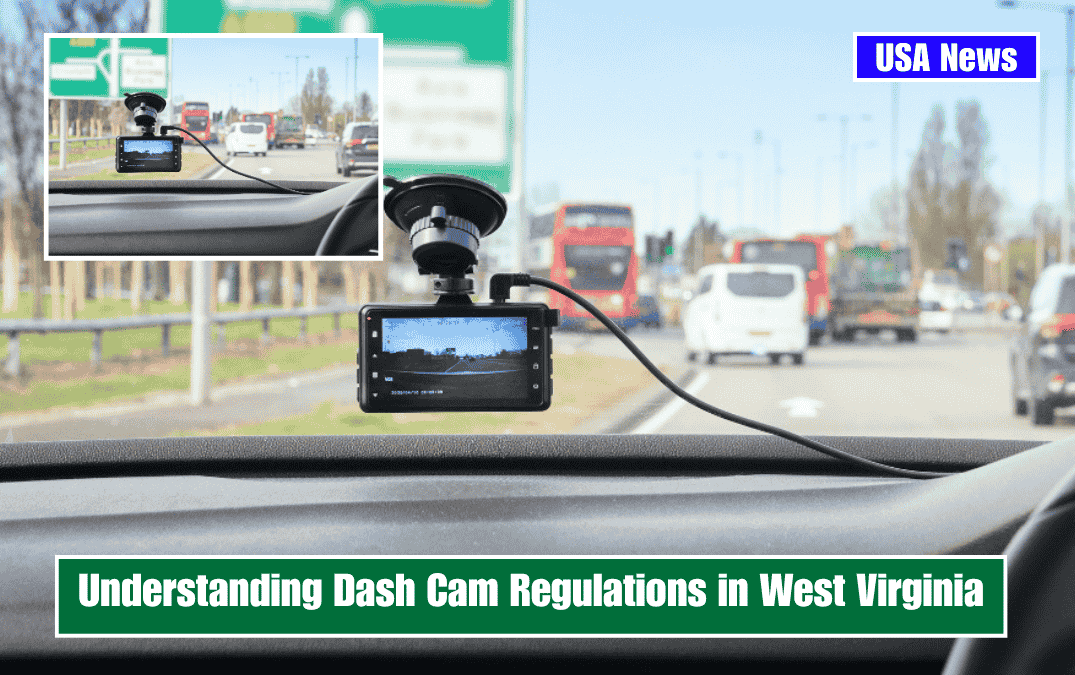Dash cams have become a popular tool for drivers in West Virginia, offering valuable evidence in case of accidents or disputes. While they are legal in the state, there are specific regulations regarding their installation and usage that drivers must follow to ensure compliance with the law. Here’s what you need to know about dash cam regulations in West Virginia as of 2025.
Are Dash Cams Legal in West Virginia?
Yes, dash cams are legal in West Virginia. Drivers can use them to record video and audio while operating their vehicles. However, the legality of their use depends on adherence to specific rules regarding placement, visibility, and audio recording.
Placement Requirements
West Virginia law prohibits mounting dash cams or any non-transparent objects on the windshield if they obstruct the driver’s view. According to WV Code § 17C-15-36, drivers cannot place signs, posters, or other materials on the front windshield, side wings, or windows that hinder visibility. This means:
- Dash cams cannot be mounted in the middle or upper portions of the windshield.
- The recommended placement is on the dashboard or behind the rearview mirror, ensuring they do not interfere with the driver’s line of sight.
Failing to comply with these placement rules could result in fines or citations for obstructed visibility.
Audio Recording Rules
West Virginia follows a single-party consent rule for audio recording. This means that as long as one party involved in the conversation (such as the driver) consents to the recording, it is legal.
However, if passengers are unaware they are being recorded, this could lead to privacy concerns or legal disputes. To avoid issues, it’s advisable to inform passengers that audio is being recorded when using a dash cam.
Use of Dash Cam Footage
Dash cam footage is admissible as evidence in West Virginia courts during personal injury cases, insurance claims, or disputes over traffic incidents. However, its effectiveness depends on how it was recorded:
- The footage must comply with state laws regarding placement and recording consent.
- Improperly mounted dash cams or unauthorized audio recordings may render the footage inadmissible in court.
Additionally, while dash cam footage can support your case, it can also be used against you if it shows evidence of negligence or wrongdoing on your part.
Benefits of Using Dash Cams
Dash cams provide several advantages for drivers in West Virginia:
- Accident Documentation: They offer clear evidence of fault during collisions.
- Insurance Claims: Footage can expedite claim processes and prevent fraudulent claims.
- Traffic Disputes: Dash cams help resolve disputes over traffic violations or incidents involving other drivers.
While dash cams are legal and beneficial for drivers in West Virginia, compliance with state regulations is essential. Ensure your device is mounted on the dashboard or behind the rearview mirror to avoid obstructing your view.
Additionally, adhere to single-party consent rules for audio recording and inform passengers when necessary. By following these guidelines, you can use dash cams effectively and legally while protecting yourself on the road.
SOURCES:-
[1] https://www.wvjusticelawyers.com/legal-advice/west-virginia-dashcam-laws/
[2] https://facit.ai/insights/dash-cam-laws-by-state
[3] https://matrackinc.com/dash-cam-laws-by-states/
[4] https://www.ddpai.com/blog/dash-cam-laws/
[5] https://www.wvjusticelawyers.com/legal-advice/dash-cam-footage-be-used-in-court/









